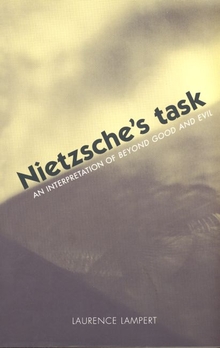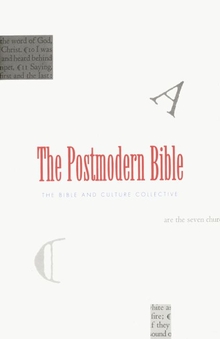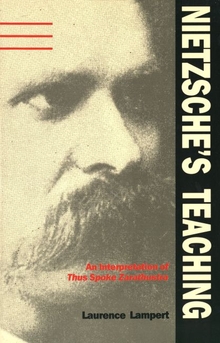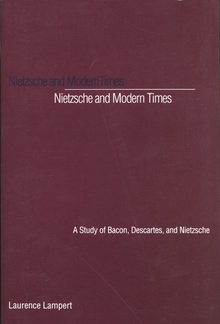Nietzsche's Task
WARNING
You are viewing an older version of the Yalebooks website. Please visit out new website with more updated information and a better user experience: https://www.yalebooks.com
An Interpretation of Beyond Good and Evil
Laurence Lampert
According to Lampert, Nietzsche begins with a critique of philosophy that is ultimately affirmative, because it shows how philosophy can arrive at a defensible ontological account of the way of all beings. Nietzsche next argues that a new post-Christian religion can arise out of the affirmation of the world disclosed to philosophy. Then, turning to the implications of the new ontology for morality and politics, Nietzsche argues that these can be reconstituted on the fundamental insights of the new philosophy. Nietzsche’s comprehensive depiction of this anti-Platonic philosophy ends with a chapter on nobility, in which he contends that what can now be publicly celebrated as noble in our species are its highest achievements of mind and spirit.
Laurence Lampert, professor of philosophy at Indiana University, Indianapolis, is also the author of Nietzsche’s Teaching and Nietzsche and Modern Times, both published by Yale University Press.
“A masterpiece of insightful commentary and a brilliant interpretation of one of Nietzsche’s richest—and most poorly understood—books.”—Graham Parkes, University of Hawaii
“Nietzsche’s Task is a work every student of Nietzsche can read with pleasure and profit. Its many virtues include close, judicious, and patient readings of the text and illuminating discussions of major concepts such as will to power, eternal return, probity, morality, and nobility. . . . Lampert’s insightful study of Beyond Good and Evil significantly enriches the already extensive and ever-expanding body of Nietzsche scholarship: it merits a distinguished place in all college libraries.”—Choice
“An engaging, bold, and insightful book that should stand above much recent Nietzsche scholarship for its attention to Nietzsche’s purposes and its care with Nietzsche’s text.”—Paul Kirkland, Review of Metaphysics
“There is much to admire in Lampert’s book. His attention to detail is impressive. He highlights details and motifs that may seem minor, but add a great deal of richness to our understanding of Nietzsche’s work. . . . Lampert’s book deserves to be read. He is a serious scholar, and his work displays an impressive understanding and attention to detail. . . . It is surely an excellent book.”—Paul F. Glenn, The Review of Politics
Publication Date: February 9, 2004










